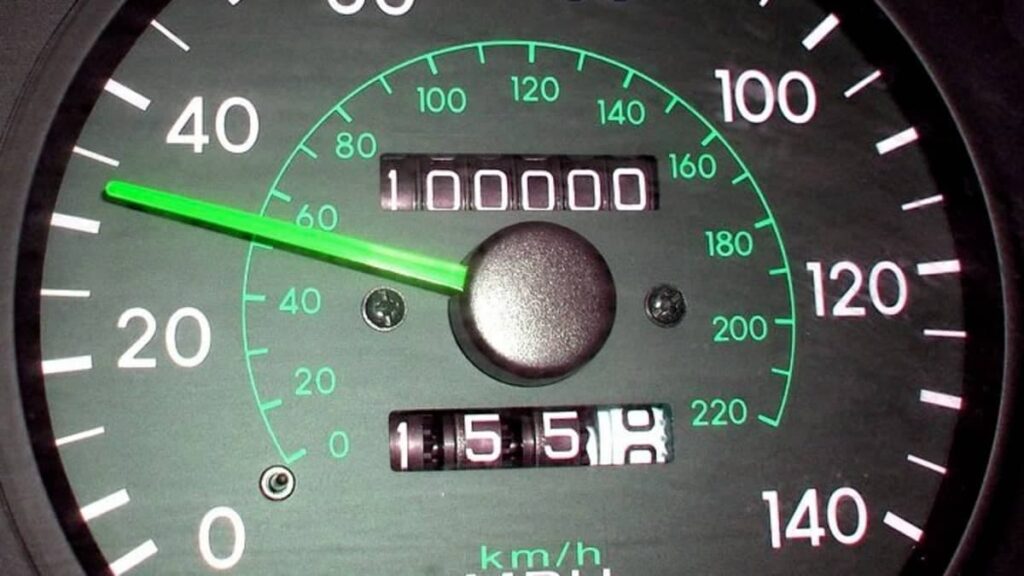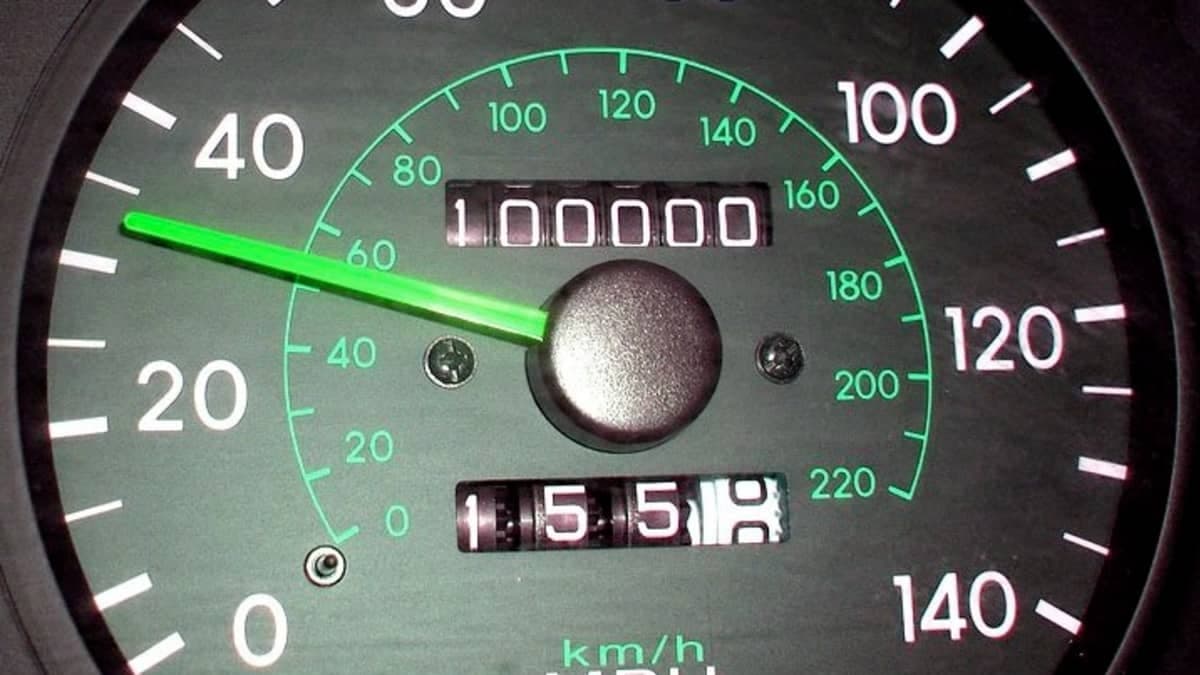Table of Contents
- Introduction to car’s 100K miles maintenance
- Basic Maintenance Tips
- Major Maintenance Items
- Preventive Maintenance
- Conclusion: The Importance of Proper Maintenance at 100,000 Miles
- Frequently Asked Questions about 100k miles car maintenance
Home » The Ultimate Guide to 100,000 Miles Car Maintenance
Introduction to car’s 100K miles maintenance

Car maintenance is an essential aspect of vehicle ownership. Proper maintenance not only helps extend the life of your car but also helps ensure its safety and reliability on the road. As a car reaches higher mileage, paying attention to its maintenance needs becomes even more critical. This is especially true when a car comes the 100,000-mile mark, as this milestone signifies that the car has been through significant wear and tear.
While it’s natural to think that a car with 100,000 miles is close to the end of its lifespan, this is not always the case. With proper maintenance, a car can continue to run smoothly and efficiently for many more miles. In this ultimate guide to 100,000 miles car maintenance, we’ll cover the basics of car care as well as the major maintenance items that you should pay attention to as your car reaches this milestone. We’ll also discuss preventive maintenance and provide some bonus tips to help you get the most out of your car.
Whether you’re a seasoned car owner or new to the world of vehicle maintenance, this guide will provide valuable information and resources to help you keep your car running smoothly for years to come. So, let’s get started!
Basic Maintenance Tips
One of the keys to maintaining a car at 100,000 miles is to keep up with regular maintenance tasks. These tasks may seem small, but they can make a big difference in your car’s overall health and performance. Here are some basic maintenance tips to follow:
- Regular oil changes: Oil is the lifeblood of your car’s engine, and it’s essential to keep it clean and fresh. Depending on your car’s make and model, you may need to change the oil every 3,000-5,000 miles. Make sure to use the correct type of oil for your car, and consider using a higher-quality oil to extend the life of your engine.
- Tire rotation and alignment: Proper tire maintenance is essential for the safety and performance of your car. Rotating your tires regularly (every 6,000-8,000 miles) helps to ensure even wear and extend their lifespan. In addition, getting your tires aligned regularly can help improve your car’s handling and fuel efficiency.
- Replacing worn-out brake pads: Brake pads are a crucial safety feature of your car, and it’s important to replace them when worn out. If you hear squealing or grinding noises when you brake, it’s time to check your pads. Replacing them as needed will help ensure your car stops safely and efficiently.
- Checking and replacing filters: Air, fuel, and cabin filters all play important roles in the performance and efficiency of your car. Check and replace these filters as needed, according to your car’s manufacturer’s recommendations. Dirty or clogged filters can reduce your car’s performance and fuel efficiency.
By following these basic maintenance tips, you can help ensure your car runs smoothly and efficiently at 100,000 miles. Remember, staying up to date with these tasks is important to prevent larger, more costly repairs down the road.
Major Maintenance Items
As a car reaches the 100,000-mile mark, a few major maintenance items should be addressed. These items may not need to be replaced as frequently as basic maintenance tasks, but they are still crucial for the health and performance of your car. Here are some major maintenance items to consider:
- Timing belt replacement: The timing belt is a critical component of your car’s engine, and it’s important to replace it according to the manufacturer’s recommendations. A timing belt failure can cause serious damage to your engine, so it’s worth replacing it as needed to avoid costly repairs.
- Transmission service: The transmission is another vital component of your car, and it’s important to keep it well-maintained. At 100,000 miles, it’s a good idea to have your transmission checked and serviced as needed. This may include changing the transmission fluid, replacing the filter, and checking for any issues or wear and tear.
- Coolant flush: The coolant in your car helps to keep the engine running at the correct temperature. At 100,000 miles, it’s a good idea to flush the coolant and replace it with fresh fluid. This will help to prevent overheating and other issues with your engine.
- Engine tune-up: As your car reaches 100,000 miles, it’s a good idea to have an engine tune-up. This may include replacing spark plugs, checking and adjusting the ignition system, and inspecting the fuel system. An engine tune-up can help improve your car’s performance and fuel efficiency.
By addressing these major maintenance items, you can help ensure your car runs smoothly and efficiently at 100,000 miles. Remember, it’s important to stay up to date with these tasks to prevent larger, more costly repairs down the road.
Preventive Maintenance

Preventive maintenance is all about taking proactive steps to keep your car running smoothly and efficiently. By staying up to date with regular maintenance tasks and addressing potential issues before they become major problems, you can save yourself a lot of money and hassle in the long run. Here are some tips for preventive maintenance:
- Keep up with regular maintenance: As we’ve discussed, it’s essential to keep up with regular maintenance tasks like oil changes, tire rotations, and brake pad replacements. By staying on top of these tasks, you can help prevent larger, more costly repairs down the road.
- Consider purchasing an extended warranty: An extended warranty can provide peace of mind and financial protection in case of unexpected repairs or issues with your car. While it’s an added expense, it can save you money in the long run if you experience a major issue with your car.
By following these preventive maintenance tips, you can help ensure your car runs smoothly and efficiently at 100,000 miles and beyond. Remember, it’s better to be proactive and address potential issues before they become major problems.
Conclusion: The Importance of Proper Maintenance at 100,000 Miles
Maintaining your car at 100,000 miles is crucial for its longevity and performance on the road. By following the tips and guidelines outlined in this guide, you can help ensure that your car runs smoothly and efficiently for many more miles. From basic maintenance tasks like oil changes and tire rotations to major maintenance items like timing belt replacements and transmission service, it’s important to stay up to date with your car’s maintenance needs.
Proper maintenance can also save you money in the long run. You can avoid costly repairs and keep your car running smoothly by addressing potential issues before they become major problems. And don’t forget the importance of preventive maintenance. By taking proactive steps to keep your car in good condition, you can extend its lifespan and ensure its reliability on the road.
In conclusion, maintaining your car at 100,000 miles is essential for its overall health and performance. By following the tips and guidelines outlined in this guide, you can help ensure that your car is running smoothly and efficiently for many more miles to come.
Frequently Asked Questions about 100k miles car maintenance
How often should I change the oil in my car at 100,000 miles?
The frequency of oil changes will depend on your car’s make and model and the type of oil you are using. It’s important to refer to your car’s manufacturer’s recommendations for specific oil change intervals. As a general rule, changing the oil every 3,000-5,000 miles at 100,000 miles and beyond is a good idea.
How often should I rotate my tires at 100,000 miles?
Rotating your tires every 6,000-8,000 miles is a good idea to ensure even wear and extend their lifespan. This is especially important at 100,000 miles, as your tires may have experienced a significant amount of wear and tear.
When should I replace my brake pads at 100,000 miles?
Brake pads should be replaced when they become worn out or when you hear squealing or grinding noises when braking. The frequency of brake pad replacements will depend on how much you drive and the condition of your brakes. It’s a good idea to check your brakes regularly and replace the pads as needed at 100,000 miles and beyond.
How often should I check and replace my filters (air, fuel, cabin) at 100,000 miles?
It’s a good idea to check and replace your filters according to the manufacturer’s recommendations. This will depend on your specific make and model and the type of filters you are using. Dirty or clogged filters can reduce your car’s performance and fuel efficiency, so it’s important to keep them clean and fresh at 100,000 miles and beyond.
Is it necessary to have a timing belt replacement at 100,000 miles?
Whether or not you need to have a timing belt replacement at 100,000 miles will depend on your specific make and model. It’s important to refer to the manufacturer’s recommendations for timing belt replacements, as a timing belt failure can cause serious damage to your engine. If your timing belt is due for replacement at 100,000 miles, it’s a good idea to replace it to avoid costly repairs down the road.

